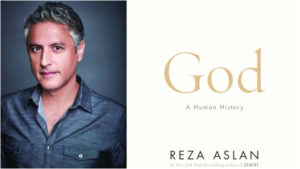
God: A Human History
Reza Aslan
Bantam Press (2017)
Rs1,395
The bestselling author of Zealot explores humanity’s quest to make sense of the divine in this concise and fascinating history of our understanding of God.
In Zealot, Reza Aslan replaced the staid, well-worn portrayal of Jesus of Nazareth with a startling new image of the man in all his contradictions. In his new book, Aslan takes on a subject even more immense: God, writ large.
In layered prose and with thoughtful, accessible scholarship, Aslan narrates the history of religion as a remarkably cohesive attempt to understand the divine by giving it human traits and emotions. According to Aslan, this innate desire to humanize God is hardwired in our brains, making it a central feature of nearly every religious tradition. As Aslan writes, “Whether we are aware of it or not, and regardless of whether we’re believers or not, what the vast majority of us think about when we think about God is a divine version of ourselves.”
But this projection is not without consequences. We bestow upon God not just all that is good in human nature—our compassion, our thirst for justice—but all that is bad in it: our greed, our bigotry, our penchant for violence. All these qualities inform our religions, cultures, and governments.
More than just a history of our understanding of God, this book is an attempt to get to the root of this humanizing impulse in order to develop a more universal spirituality. Whether you believe in one God, many gods, or no god at all, God: A Human History will challenge the way you think about the divine and its role in our everyday lives.
Reza Aslan is an acclaimed writer and scholar of religions whose books include No god but God: The Origins, Evolution, and Future of Islam and Zealot: The Life and Times of Jesus of Nazareth. He is also the author of How to Win a Cosmic War: God, Globalization, and the End of the War on Terror (published in paperback as Beyond Fundamentalism), as well as the editor of Tablet and Pen: Literary Landscapes from the Modern Middle East. He lives in Los Angeles with his wife and three sons.
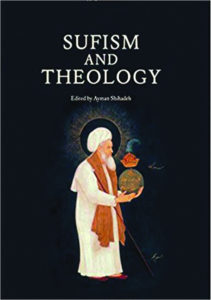
Sufism and Theology
Ayman Shihadeh
Edinburgh University Press (2007)
Rs9,161
Sufism and Theology are two major currents in Islamic thought and religious culture, and over the centuries they have displayed immense diversity and intellectual richness. This book takes a flexible and inclusive approach to these trends, revealing both how Sufis approached theological traditions and themes and practised theology themselves, and how theologians approached different aspects of Sufism.
Comprising chapters by leading specialists in the field, this volume is the first to explore the historically complex interface between these two major currents, highlighting key points of tension and interaction. Taking us through an array of subjects, including hermeneutics, psychology and metaphysics, light is shed on major intellectual trends and figures from the 12th century up to the modern period. These range from al-Hallaj, Ibn ‘Arabi and Ibn Sab’in, to Fakhr al-Din al-Razi, Ibn Taymiyya, Haydar Amuli and Ibn Kemal Pasha, from the Ottoman context to the Safavid, and from Sunnism to Shi’ism.
Ayman Shihadeh is lecturer in Islamic Studies and Arabic at the University of Edinburgh.
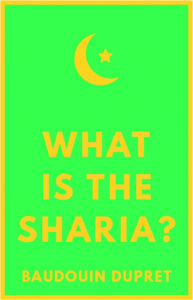
What is the Sharia?
Baudouin Dupret
Hurst Publishers (2018)
Rs2,795
An indispensable introduction to the evolution and implementation of Sharia law within the Muslim world, published in association with the Aga Khan University Institute for the Study of Muslim Civilisations (AKU-ISMC) and with the support of the French Ministry of Culture.
In the West, ‘sharia’ often calls to mind antiquated laws founded upon gender discrimination and barbaric punishments. In the East, for some it means the ideal standards by which Muslims strive to live; for others, it is the greatest obstacle to modernisation of their societies. These clashing views sometimes lead to violence.
Clarification of the term has therefore become an urgent necessity.
Sharia is all of these things and much more. It is the legal system of Islam, a series of guidelines and prohibitions. But it is also a concept invested with a whole range of meanings, from the virtuous attributes of an ‘ideal’ society, to the confinement of particular elements to otherness and adversity.
Moving through history, society and Islamic thought to explore the sources of sharia law, Baudouin Dupret gets to the heart of its uses and abuses in the twentieth and twenty-first centuries. This short, accessible book provides an invaluable guide for those seeking to understand a matter more complex and pressing today than ever before.
Baudouin Dupret is educated in Law, Islamic Sciences and Political Sciences. He spent many years as a researcher in Egypt, Syria, and Morocco. He has published extensively on sociology and anthropology of law, and on legislation in the Middle East and North Africa, including the co-authored Law at Work.
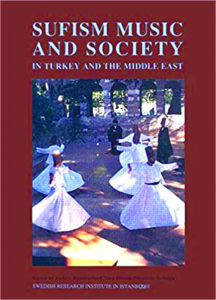
Sufism, Music and Society in Turkey and the Middle East
Anders Hammarlund
Swedish Research Institute in Istanbul (2001)
Rs3,112
After decades of prohibition, Mevlana ceremonies of whirling dervishes attract renewed interest as forms of sacral music, both in formal and popular genres. This trend runs parallel to an increasing concern for cultural, ethnic and religious identities, where the rising tide of religious revivalism sets the tone.
With the collapse of the Ottoman empire after World War I and the restructure of Turkey with Ataturk as leader, the push to create a modern European-looking nation suffered the excesses of many revolutions and this include the attack on traditional “Oriental” music. Folk music was permitted primarily as a source of melodies for Western polytonal composition with mainly European orchestral instruments, in the manner of Bartok and Khachaturian. Sufi lodges were disbanded and with them their rites and music. This book discusses the history of musical forms in Turkey before, during, and now after the politically directed injunctions in a scholarly but readable anthology of papers presented at a conference in Istanbul in 1997. Included is a paper on the role of Jews and Jewish religious music in Ottoman art music. Another article of note is on Albania as another example of political interference on traditional musics. Key to the recent relaxation and influx of musical influences from neighboring Middle Eastern lands was mass communication: recordings, tapes, and the internet and the role of musicians themselves in wishing to expand and explore their idioms. This book provides a fine introduction to the complex of music, Islam, and society in one of the crossroads of the world.
Anders Hammarlund is an associate professor, cultural historian, and music ethnologist, whose fields of expertise are Central Europe, the Balkans, and Turkey. The link between aesthetic and political culture has been a constant theme in Hammarlund’s work as a researcher, teacher, and media personality.
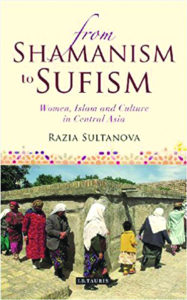
From Shamanism to Sufism: Women, Islam and Culture in Central Asia
Razia Sultanova
I.B.Tauris (2011)
Rs10,260
Women have traditionally played a vital part in Islam throughout Central Asia - the vast area from the Caspian Sea to Siberia. With this ground-breaking and original study, Razia Sultanova examines the experiences of Muslim women in the region and the ways in which religion has shaped their daily lives and continues to do so today. ‘From Shamanism to Sufism’ explores the fundamental interplay between religious belief and the cultural heritage of music and dance and is the first book to focus particularly on the role of women. Ritual and music are at the heart of Central Asian and Islamic culture, not only at weddings and funerals but in all aspects of everyday life. Through her in-depth analysis of these facets of cultural life within Central Asian society, ‘From Shamanism to Sufism’ offers important insights into the lives of the societies in the region. The role of women has often been neglected in studies of religious culture and this book fills an enormous gap, restoring women to their rightful historical and cultural context. It will be essential reading for anyone with a serious interest in the History or Religion of Central Asia or in Global Islam.
Razia Sultanova is a fellow at Cambridge Central Asia Forum, University of Cambridge and director of the Centre for Central Asian music. She graduated from Uzbek State Conservatory and was awarded her PhD by Moscow State Conservatory, where she is visiting professor. She has also worked as a Research Fellow at Goldsmith’s College and at the School of Oriental and African Studies, University of London. Her interests extend from Russian and Central Asian to Middle Eastern culture and music. Razia Sultanova was the editor of a special issue of the Journal Ethnomusicology Forum, entitled ‘Music and Identity in Central Asia’ (2005); a special issue of the journal Cahiers de musiques traditionelles entitled ‘Entre Femmes’ (2005) and the book ‘Sacred Knowledge: Schools or revelation? Master-Apprentice System of Oral Transmission in the Music of the Turkic Speaking World’ (2009).

